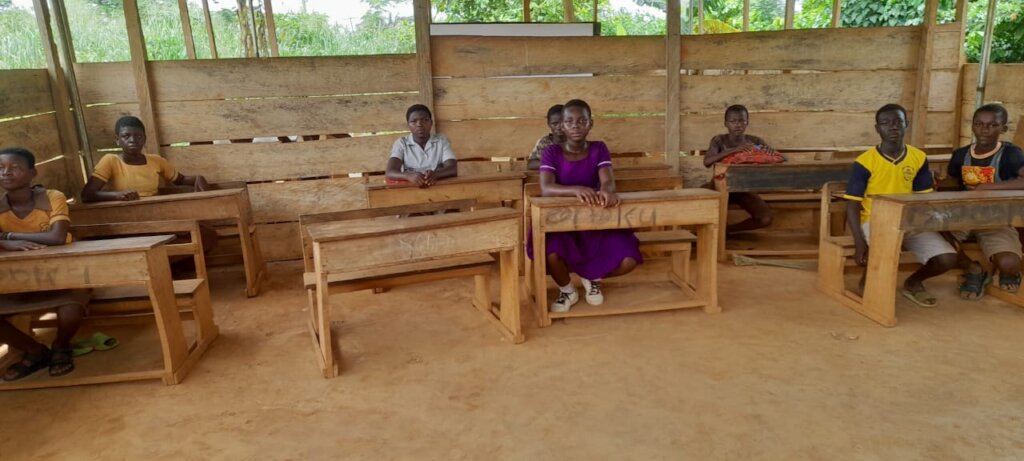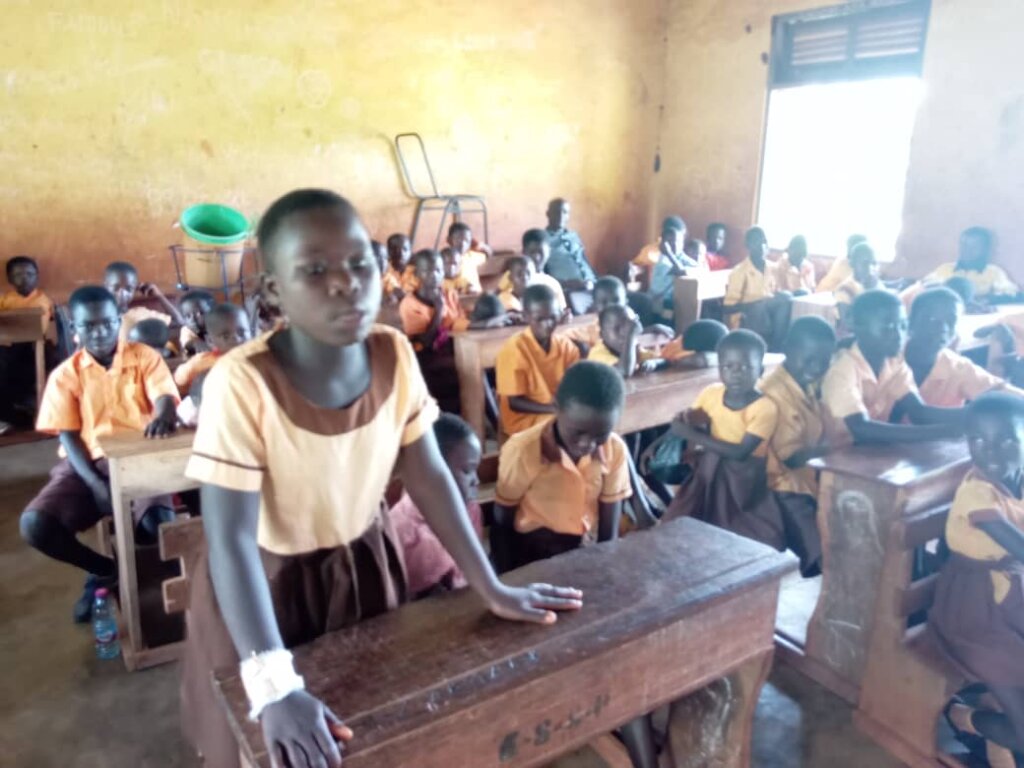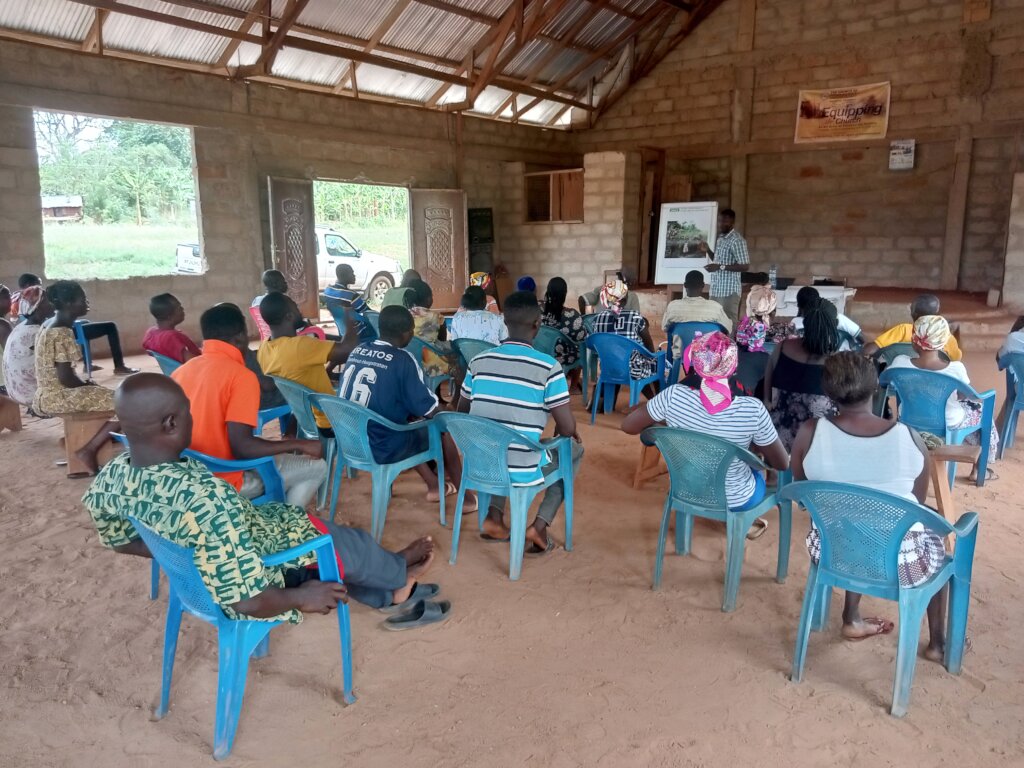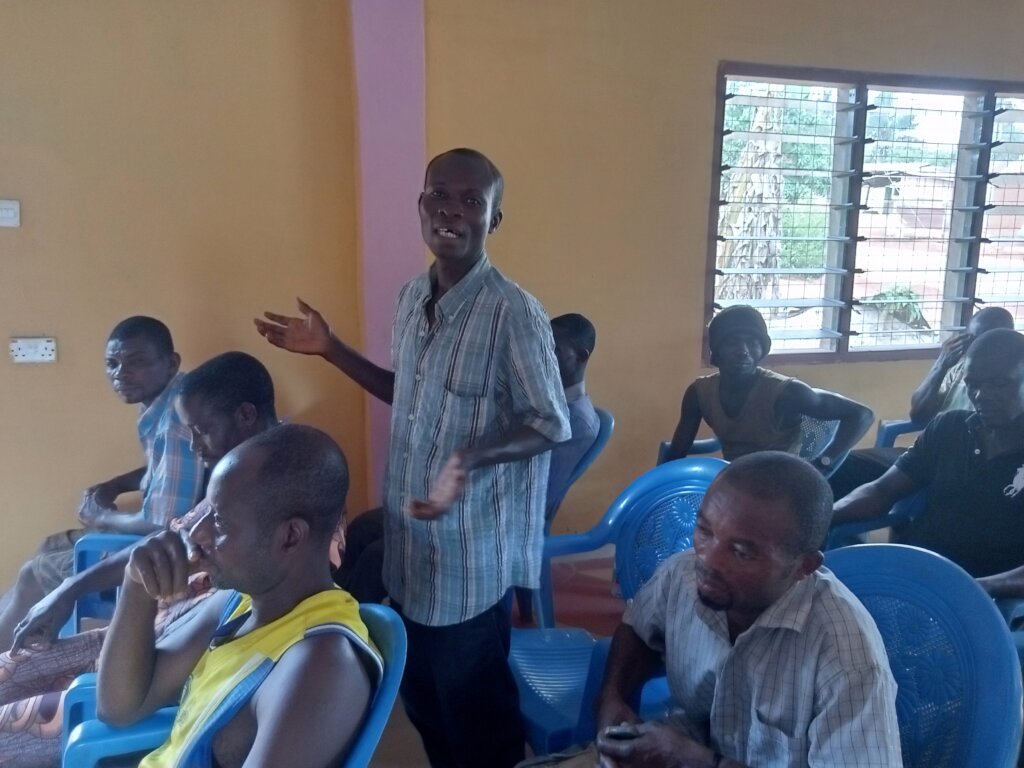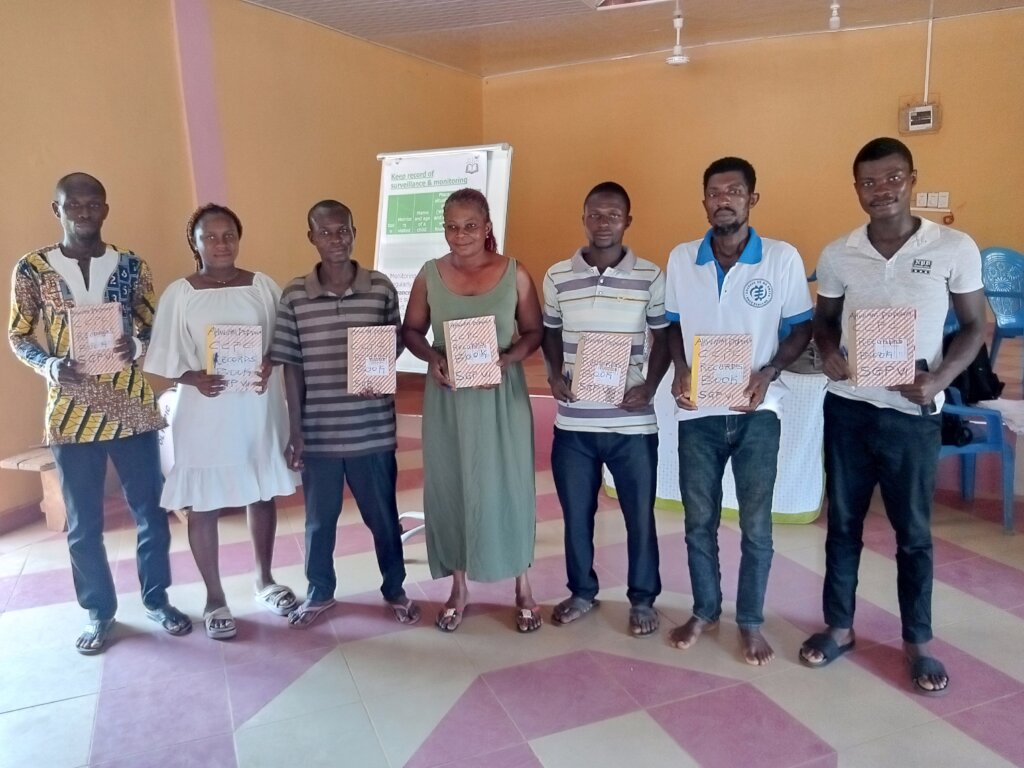By Yuki Akahori | SMILE Ghana Project Manager
Thank you very much for your kind support for ACE. My name is Yuki Akahori. I am SMILE Ghana Project Manager.
In February 2023, the SMILE Ghana Project started full-scale activities in two new communities. This is phase 6 of the project, counting from phase 1, which started in 2009.
In this issue, we would like to introduce these two new communities and some of the activities that have begun to take place.
Current Community Situation - Low School Attendance Rate, Unstable Working Environment
The two new communities (K and L) have a combined population of about 930, of which about 430 are children. K has one elementary school with a kindergarten and one junior high school, while L has only one elementary school with a kindergarten. There is no middle school in CommunityL, so children who graduate from elementary school go to middle schools in the Community K or other adjacent communities. A certain number of children give up going to middle school when they must walk hours to get there.
Before starting the project, school attendance rates were surveyed and found to be very low (as of November 2022): 66% and 60% in the elementary schools in Community K and Community L, respectively, and 57% in the junior high school in Community K.
It was found that children were absent from school because they helped their parents with farm work or stayed home to take care of their younger siblings when their parents were away from home on farms or at the market and that they were especially likely to go with their parents to farms or open-air markets to help with work from Wednesday to Friday. We found that there were teacher shortages in three grades in the elementary schools in both communities and in the junior high school in Community K, there were no teachers for six subjects.
Regarding the situation of cacao farmers, we found that most farmers in both communities are landless peasants (caretakers) and tend to migrate to other communities every few years. Reasons for migration include finding a farm where they can work under better conditions or being fired by the landowner due to low cacao yields, leaving both adults and children in an unstable environment.
Creating a System to Look after Children ~ Capacity Building Workshops for Residents
The first activity to be undertaken when starting our activities in a new community is a capacity building of residents. We ask residents to have an eye for identifying children who are engaged in child labour or at risk of child labour, and to acquire the know-how on how to respond once they have been identified. This is the foundation for creating an environment that protects children.
Therefore, in March 2023, we held a workshop (training) for representatives of the residents. Participants included the head of the community, opinion leaders, the school management committee (SMC)/PTA members, residents, child representatives, and district assembly members elected from the constituency to which communities belong.
The content of the training was as follows, which included a mix of lectures and discussions to deepen understanding of what is needed to protect children in the community from child labour.
- Basic knowledge of child labour
- Requirements at the community level under the "Child Labour Free Zone (Child Labour Free Zone) Certification System" promoted by the Ghanaian government
- Establishment of a system to monitor whether child labour is occurring
- Improvement of the learning environment and the role of the school management committee (SMC)/PTA
- Bridge between children at risk of child labour and social services and support measures
The question was asked, "What kind of child labour have you seen in this community?" the residents shared the following examples.
- There are children who do not go to school and help the cacao plantation with their parents.
- There is a child who collects cacao pods and carries them.
- A child is not going to school but is helping his/her parents to go to the open-air market. Or they stay at home and take care of their younger siblings while their guardians are out at the market.
- They are in the business of transporting lumber and other materials on a commercial three-wheeled motorcycle.
- There is neglect of children by their parents.
What Do You Do if You Find a Child in Child Labour?
Next, we explained what to do if you find a child who is doing child labour or is at risk in some way. If a resident finds such a child, he or she should consult the Community Child Protection Committee ("CCPC"), which will visit the child and his or her parents to discuss how the child can go to school and not work. The CCPC will also work with the School Management Committee (SMC)/PTA and opinion leaders to monitor the community and surrounding communities.
After the explanation of how to respond, CCPC members were selected in each community. When selecting the CCPC members, we took advantage of issues raised during the evaluation upon completion in the supported areas up to last August, and established rules such as "be sure to include several members who can read and write in order to keep records of activities" and "be sure to fill in for a replacement if a vacancy occurs.
In addition, residents asked questions about how to persuade working children and their parents, and staff from local partner organizations answered them. Here are some of the Q&A.
Q1: How do I talk to parents whose children are engaged in child labour because they cannot afford school supplies?
A1. First, visit the home and discuss the situation with the parents and the child. If it is confirmed that the family is in financial difficulties, introduce all remedial measures. School supplies and income training supported by the project are examples of such measures.
Q2: If a farmer's parents do not want their children to go to school, but only to study agriculture so that they can take over the farm in the future, how can you persuade them?
A2. The Ghanaian Constitution and laws stipulate that education from kindergarten to junior high school is compulsory. It is important for any child to learn at school according to the laws of the country.
Conclusion
Through the discussion and Q&A session, we feel that we have deepened the understanding of the residents about the system to look after their children.
What kind of changes will take place in the new communities? We would be grateful if you could keep an eye on it.
Thank you in advance for your continued support.
Project reports on GlobalGiving are posted directly to globalgiving.org by Project Leaders as they are completed, generally every 3-4 months. To protect the integrity of these documents, GlobalGiving does not alter them; therefore you may find some language or formatting issues.
If you donate to this project or have donated to this project, you can receive an email when this project posts a report. You can also subscribe for reports without donating.
Support this important cause by creating a personalized fundraising page.
Start a Fundraiser